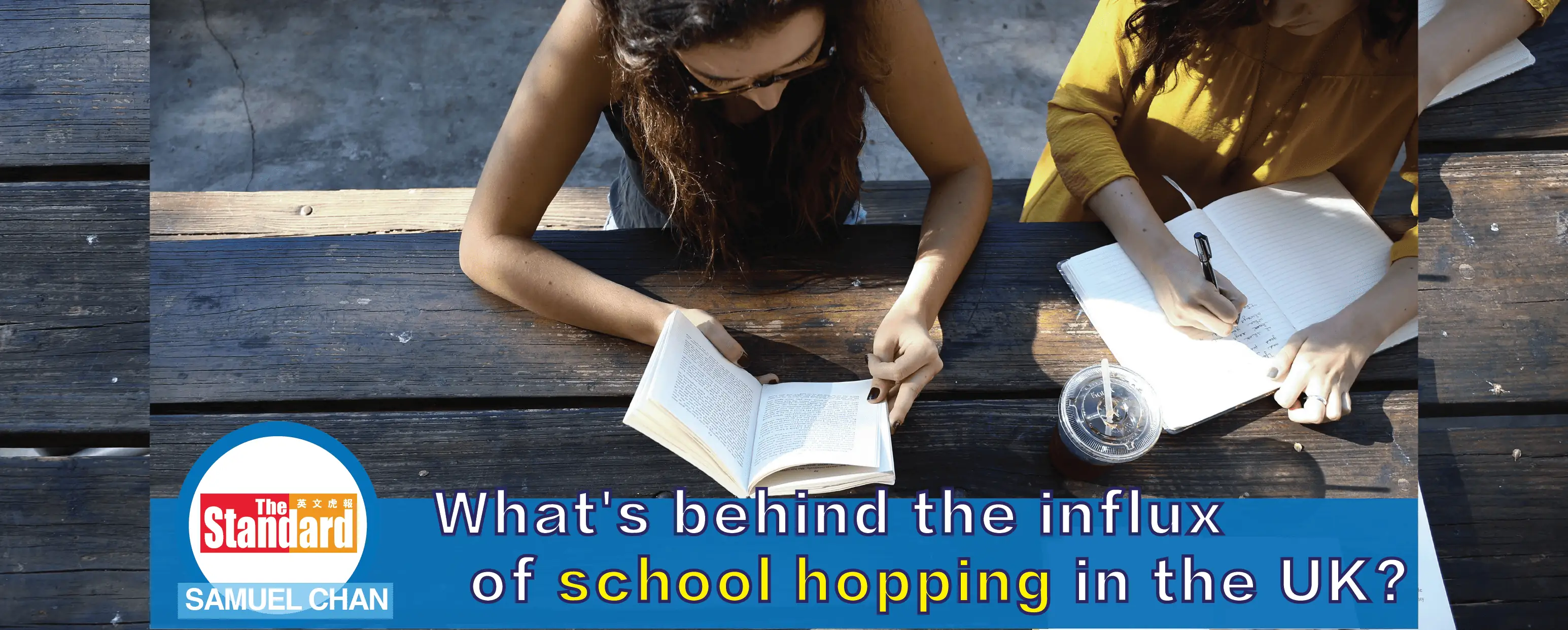School hopping is a growing trend among Chinese students studying at independent schools in the UK.
It involves moving from one school to another at the end of key stages, or at random points of the year, rather than staying at one school for the complete length of a standard British education.
Often the reasons for moving are unclear, leaving head teachers scratching their heads and wondering what’s gone wrong.
I studied at Gresham’s right through from Year 6 of prep school to Upper Sixth at the senior school.
The friendships I made during those eight years will last a lifetime and I know that I benefited enormously from being in a stable study environment so I’m particularly keen to get the bottom of all this.
Why is it happening?
First, we must acknowledge the natural reasons for a change of school. It could be finishing at a standalone prep school or wanting a change after GCSE’s – perhaps to a co-ed school or to a Sixth Form college in a city that gives more independence. However, this doesn’t explain why we’re seeing pupils switch after Year 9 or 10, especially when they transfer to a school essentially very similar to their last.
One of the biggest factors contributing to school hopping is that Hong Kong’s educational consultants are fixated with league tables.
I’ve written dozens of articles on why students should refrain from choosing a school based solely on its ranking. Not only does it fail to convey the particular atmosphere and culture of a school, but it also gives an unrepresentative picture. If, for example, a top school only accepts straight-A students, then good exam results will reflect the quality of the students as much as the quality of the teaching provided.
However, this doesn’t stop many agents from continuing to use league tables as the basis for showcasing certain schools. Any doting parent wants the best education for their child and will naturally be swayed by this. Many will start low and move up the rankings later by school hopping.
Independent schools also have a lot to answer for. Of course, exam performance and rankings are usefu; but when schools rely too heavily on these to support recruitment in international markets, other vital aspects of what they offer are overlooked.
To appreciate how a school helps students progress over time and to draw comparisons between different stages of learning, we need value-added tables to supplement league tables.
In some cases, this failure to offer a holistic view is not a marketing tactic but simply due to a general lack of knowledge about independent schools among agents. Many do not specialize in independent schools, instead focusing on universities and foundation courses.
Despite their lack of expertise, however, they’ve expanded to cover the global independent school market. Consequently, local parents often make serious decisions about education on the basis of shallow information. It’s no surprise that students only realize a school isn’t for them once they’re several terms in.
Another factor is the ever-thorny issue of commission paid to agents. Just as with estate and travel agents, a commission is paid to an intermediary to help bring in “customers.”
The vast majority of independent schools have accepted this for many years; however, the sea change in recent times has been a dramatic increase in rates.
The almost universally accepted rate of 10 percent of the first year’s fees (and maybe 5 percent in the second), has begun to disappear.
Schools keen to fill places have begun to increase their incentives and aim at more unique entry points – such as 20 percent for a single-year GCSE pupil.
The result is that some commercially-driven agents encourage families to change schools. Some schools have sought to address this through additional payments at key points – rewarding an agent whose student stays on for Sixth Form, for example. However, this alone is not enough to stem the tide.
Next week, I look at what can be done to try and help reduce school hopping.

